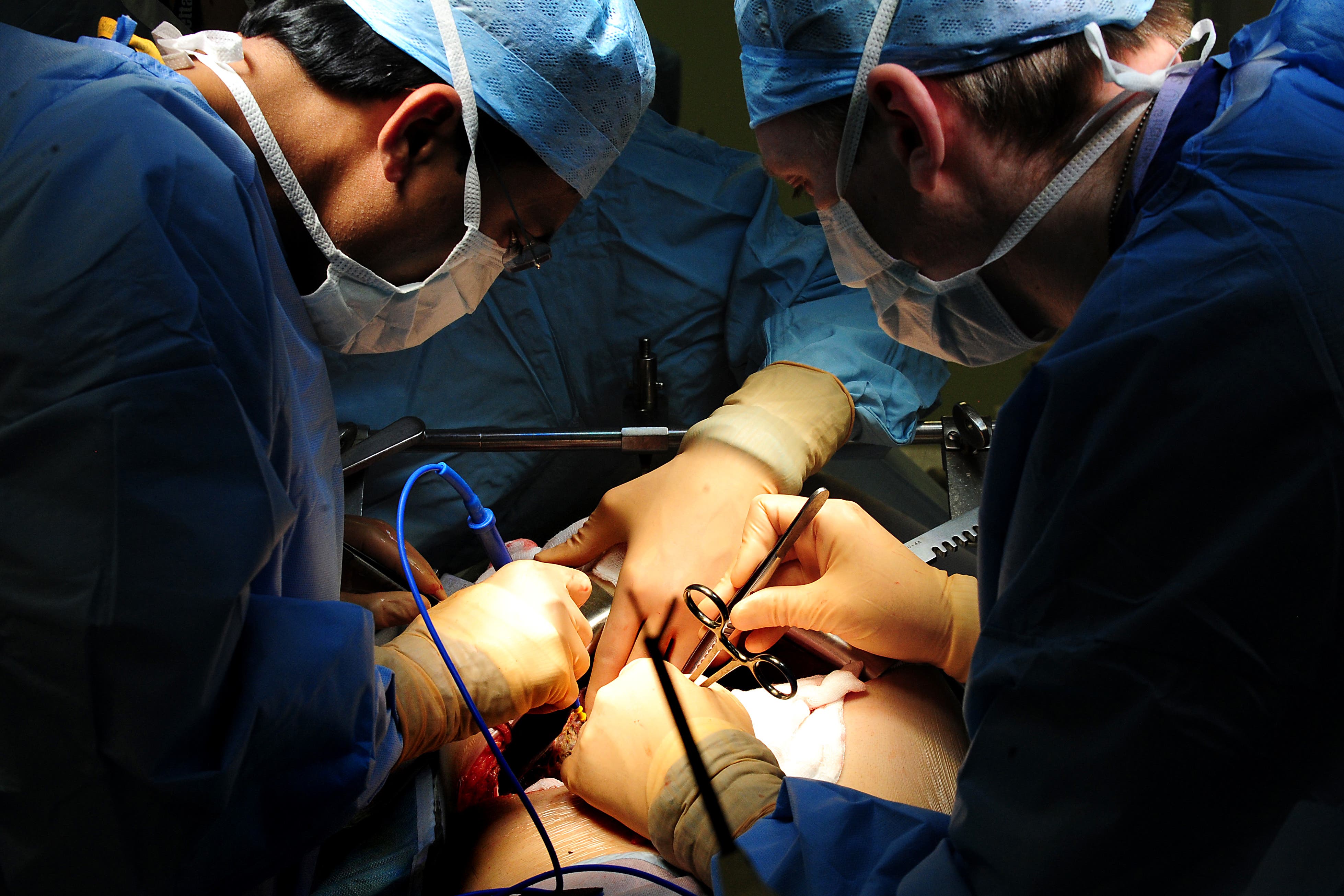Call to maximise operating rooms as millions remain on hospital waiting list
A new census of more than 6,300 surgeons across the UK found that 56% believe access to operating theatres is a major challenge.

Your support helps us to tell the story
From reproductive rights to climate change to Big Tech, The Independent is on the ground when the story is developing. Whether it's investigating the financials of Elon Musk's pro-Trump PAC or producing our latest documentary, 'The A Word', which shines a light on the American women fighting for reproductive rights, we know how important it is to parse out the facts from the messaging.
At such a critical moment in US history, we need reporters on the ground. Your donation allows us to keep sending journalists to speak to both sides of the story.
The Independent is trusted by Americans across the entire political spectrum. And unlike many other quality news outlets, we choose not to lock Americans out of our reporting and analysis with paywalls. We believe quality journalism should be available to everyone, paid for by those who can afford it.
Your support makes all the difference.Surgeons have aired frustrations over a lack of access to operating rooms as millions of people continue to wait for hospital care in England.
Some 6.39 million patients across England are waiting for routine hospital treatment, according to the latest figures.
A new census of more than 6,300 surgeons across the UK – a quarter of UK surgeons – found that 56% believe that access to operating theatres is a major challenge.
Leading surgeons said that problems accessing operating theatres are contributing to long waiting times for hospital treatment for patients.
The authors of the new Royal College of Surgeons of England (RCS England) report said there is “urgent need to increase theatre capacity by ensuring that existing theatre spaces are utilised to their full potential.”
The College called for more to be done to increase productivity, including ensuring all theatres are used to the maximum capacity; increasing the number of hospital beds solely used for pre-planned surgery, increasing the number of surgical “hubs” and increases in surgical staffing.
“Despite the surgical workforce regularly working long hours, productivity remains a key issue,” the report states.
“There are insufficient resources, which limits access and outcomes for patients, with a poor return from the NHS for the taxpayer,” the authors of the new RCS England census report wrote.
Consultants said that access to operating theatres, adequate support staff and sufficient administrative support would all boost productivity.
At a time when record waiting lists persist across the UK, it is deeply concerning that NHS productivity has decreased. The reasons for this are multifactorial, but access to operating theatres and staff wellbeing certainly play a major part
The report highlights a number of problems including some surgeons being on call for emergencies while having pre-planned work booked in, workforce issues and “theatre infrastructure”.
The authors said the system “often hinders the delivery of surgical services rather than enabling all members of the team to deliver these services to patients in the most timely and efficient way.”
Elsewhere the censuses also found that 61% of surgeons said that burnout and stress was perceived to be the main challenge in surgery.
Half (50%) of surgeons surveyed said they have considered leaving their post within the last year.
The findings demonstrate that there are “issues with productivity and sustainability of the surgical workforce”, the authors added.
RCS England president, Mr Tim Mitchell, said: “At a time when record waiting lists persist across the UK, it is deeply concerning that NHS productivity has decreased.
“The reasons for this are multifactorial, but access to operating theatres and staff wellbeing certainly play a major part.
“If surgical teams cannot get into operating theatres, patients will continue to endure unacceptably long waits for surgery.
“There is an urgent need to increase theatre capacity and ensure existing theatre spaces are used to maximum capacity.
“There is also a lot of work to be done to retain staff at all levels by reducing burnout and improving morale. RCS England stands ready to work with NHS trust organisations and health boards to develop policies and guidance that improve staff wellbeing.”
An spokesperson for the NHS in England said: “Despite significant pressure on NHS services in England, we are making good progress on our elective recovery plan with the overall waiting list for elective care coming down, thanks to the health service embracing the latest innovations and boosting capacity.
“This includes rolling out around 100 surgical hubs across the country – dedicated areas where teams of staff can turn around high volumes of common procedures in one day – this helps, increase capacity, train staff, and ensure those patients waiting the longest for care are prioritised.
“While the NHS Long Term Workforce Plan commits to improving recruitment and retention, and providing high-quality training, across the healthcare workforce in England.”